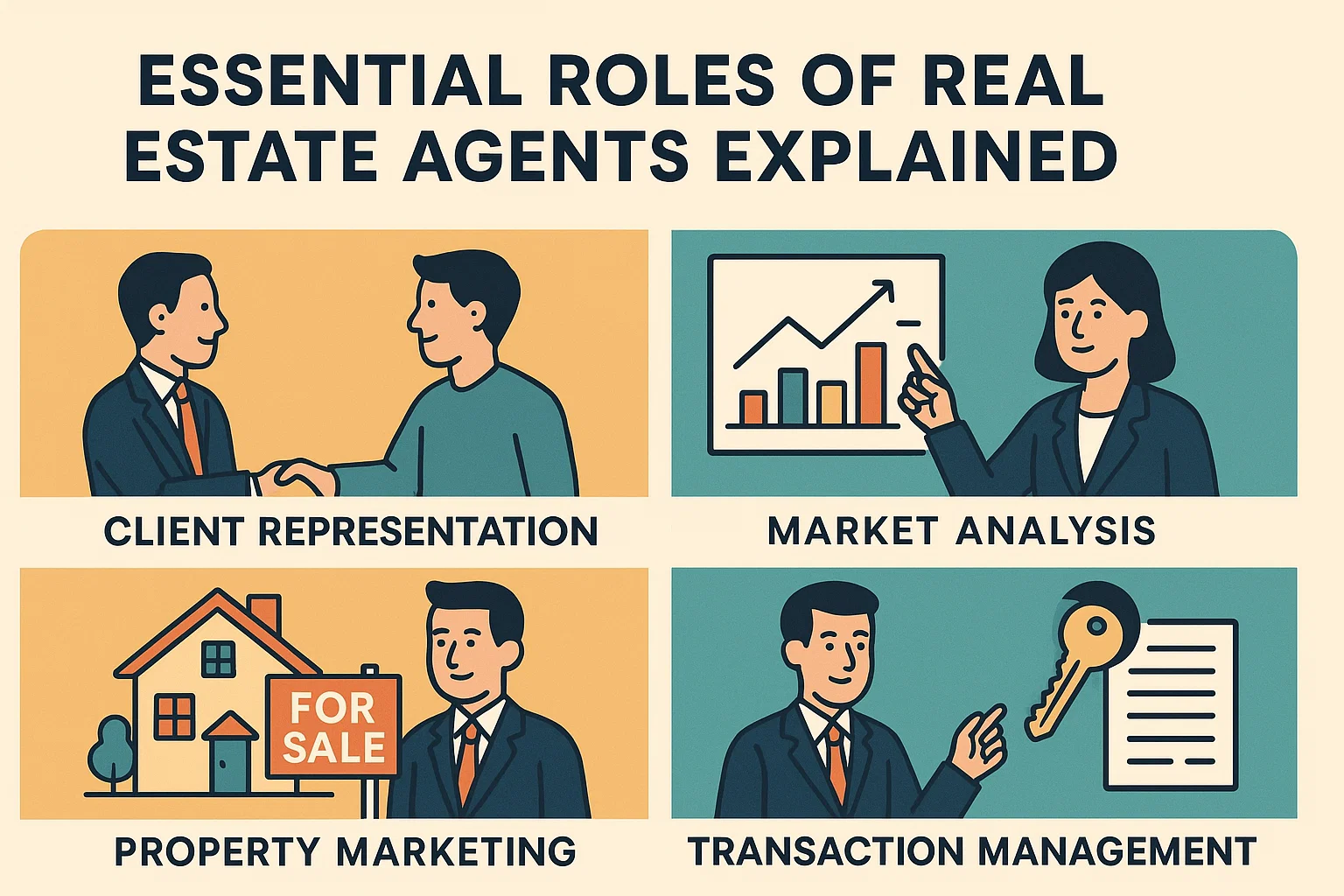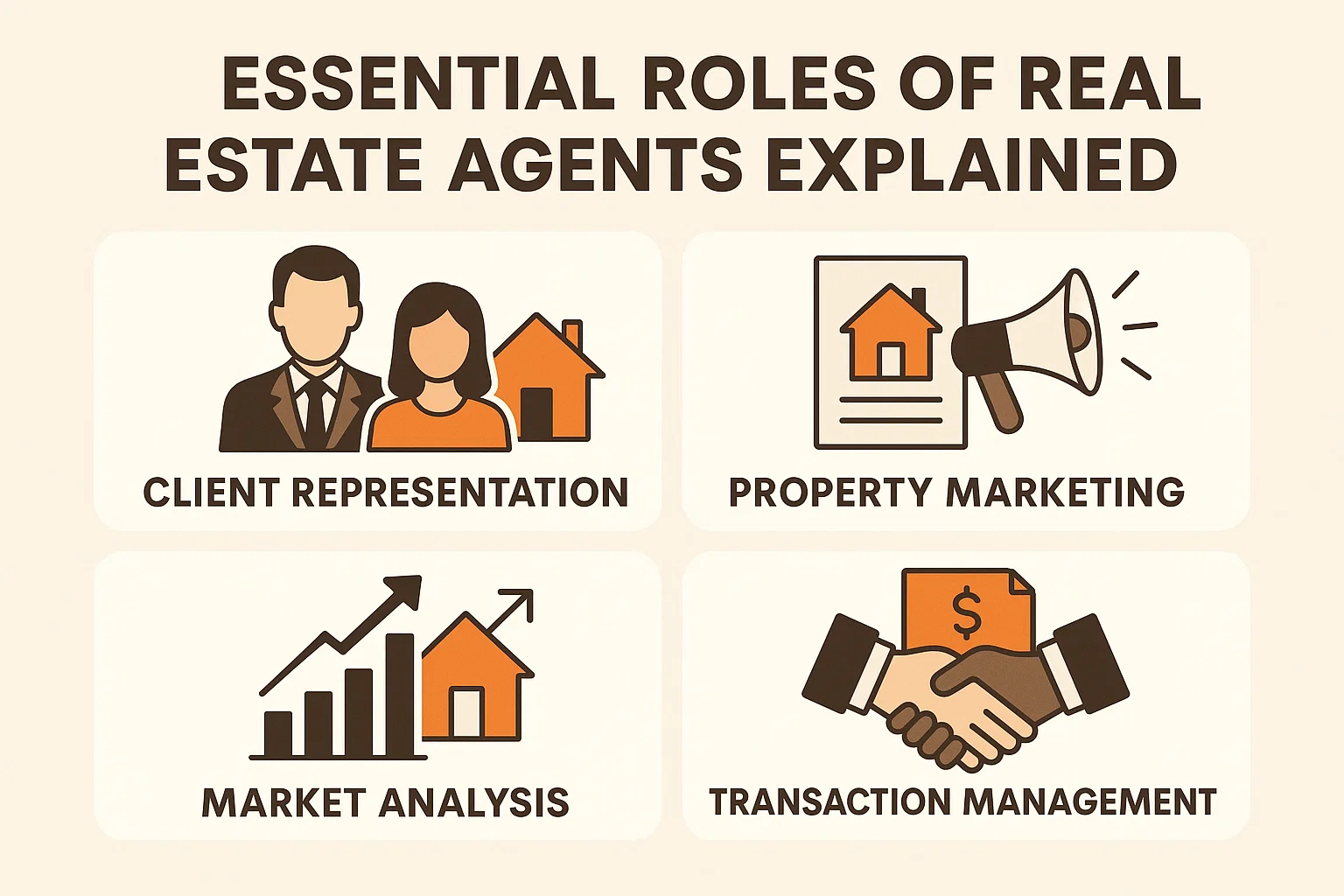Essential Roles of Real Estate Agents Explained

The Essential Roles of a Real Estate Agent: Beyond Buying and Selling
When describing the role of a real estate agent, many people focus solely on buying, selling, or renting property. While these tasks are central to the job, they only scratch the surface of an agent’s responsibilities. From the first consultation to closing a deal, agents handle a wide array of tasks to ensure a smooth experience for their clients. Below are four key ways a skilled real estate agent adds value—saving you time, effort, and stress.
1. Expert Market Research
While it’s helpful to do your own preliminary research, a professional agent brings expertise and resources to the table. For sellers, agents analyze local market trends and recent sales of comparable homes to set a competitive price. Buyers benefit from agents who streamline searches by evaluating neighborhoods, floor plans, and listings tailored to their preferences. Agents can also gather specialized information, such as identifying new developments in desired school districts, to refine your options.
2. Strategic Marketing Expertise
Listing a property involves more than just posting a “For Sale” sign. A seasoned agent knows how to craft compelling listings using industry-specific language, highlight your home’s best features, and deploy targeted marketing strategies. They also schedule open houses, leverage digital platforms, and time campaigns to maximize visibility. Their experience ensures your property reaches the right audience without wasted effort.
3. Local Professional Network
A well-connected agent provides access to a network of trusted professionals. Whether you need a handyman for pre-sale repairs, a stager to enhance your home’s appeal, or introductions to potential buyers through their contacts, their relationships streamline the process. This network is especially valuable in competitive markets, where off-market opportunities or quick referrals can make all the difference.
4. Detail Management and Guidance
Real estate transactions involve countless moving parts, from scheduling showings to navigating complex paperwork. An organized agent handles these details, keeping track of deadlines, coordinating appointments, and answering questions along the way. Their guidance helps you avoid pitfalls and focus on big decisions, like securing your ideal home or preparing for a move.
In Summary: A real estate agent’s role extends far beyond facilitating transactions. They act as researchers, marketers, negotiators, and project managers—all while leveraging local expertise to serve your goals. By entrusting these tasks to a professional, you gain peace of mind and a streamlined path to success.




